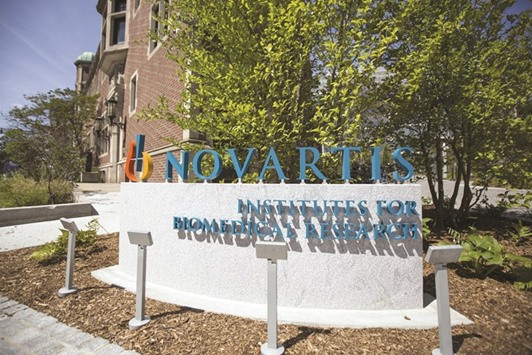Swiss drug maker Novartis said it will buy back up to $5bn worth of shares over the next 12 months and may spin off the Alcon eye care business as it navigates a tough year before an expected return to growth in 2018.
The shares rose, as analysts said the debt-financed buyback and the prospect of action being taken over Alcon’s chronic underperformance made up for the message that 2017 would be another year of stagnation for sales.
The Swiss drug maker has been trying to whip Alcon back into shape after conceding it had lost its innovative edge, but flat fourth-quarter sales and a $120mn operating loss has put the division’s future under review again.
Novartis could sell Alcon, spin it off in an IPO or even keep it. “We’ve not ruled anything out, all options are on the table,” chief executive Joe Jimenez said on Wednesday.
Novartis’ gradual $52bn takeover of Alcon from Swiss foodmaker Nestle was completed in 2010 as part of previous CEO and chairman Daniel Vasella’s empire-bulding.
On the outlook for the group, Jimenez said that Novartis would resume growth only in 2018 as it comes out from under its top-selling blood cancer drug Gleevec’s patent expiration and as newer drugs including psoriasis medication Cosentyx take off.
“Unfortunately, 2017 is going to look a lot like 2016,” Jimenez said. “We expect the next growth phase of this company to begin toward the end of this year,” he said, adding that growth was expected in each of the years 2018, 2019 and 2020.
Novartis forecast that net sales this year will be broadly in line with 2016 levels at constant exchange rates, while core operating income could be flat or decline at a low-single-digit rate at constant currencies.
“Weak management guidance for underlying operating performance in 2017 adds further disappointment,” wrote Deutsche Bank’s Tim Race in a note to investors.
“This drag will likely be offset by news that management aims to smooth earnings with a $5bn buyback.”
Jimenez said his M&A strategy was unchanged, with bolt-on acquisitions possible up to only around $5bn, in large part because larger purchases carried a steep premium.
Novartis is also hoping to make up for ground it has lost to other drug makers in the first-wave of cancer immuno-oncology by focusing on the next wave of immune system-boosting medicines.
It has 20 combination trials underway.
Fourth-quarter core net income was unchanged at $2.66bn, shy of the $2.72bn expected on average by analysts in a Reuters poll.
Sales fell 2% to $12.3bn, short of the average forecast of $12.5bn as top-selling blood cancer medicine Gleevec revenue slipped by 37% to $764mn amid stiff generic competition.
While 2016 sales of Entresto hit only $170mn, short of Novartis’s target of $200mn, Jimenez predicted prescriptions would triple in 2017, helping catapult the heart failure drug into a growth driver.
“The early warning indicators on this brand make us very bullish,” Jimenez said.
Meanwhile, Cosentyx generated sales of $391mn in the fourth quarter, with revenue rising in all three of its indications despite the introduction of Eli Lilly’s rival drug Taltz.

A signage is displayed in front of the Novartis Institutes for BioMedical Research building in Cambridge, Massachusetts. Novartis’ gradual $52bn takeover of Alcon from Swiss foodmaker Nestle was completed in 2010 as part of previous CEO and chairman Daniel Vasella’s empire-bulding.
